GEAB 132
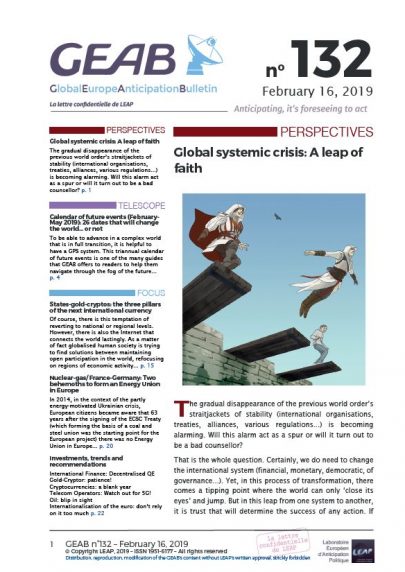
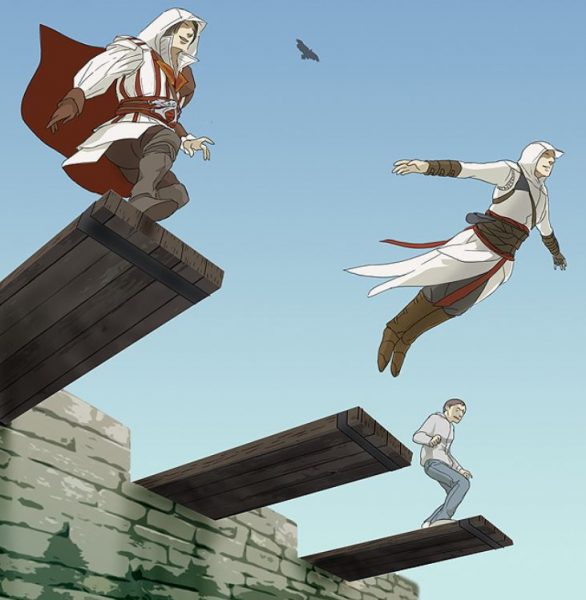
The gradual disappearance of the previous world order’s straitjackets of stability (international organisations, treaties, alliances, various regulations…) is becoming alarming. Will this alarm act as a spur or will it turn out to be a bad counsellor?
That is the whole question. Certainly, we do need to change the international system (financial, monetary, democratic, of governance…). Yet, in this process of transformation, there comes a tipping point where the world can only ‘close its eyes’ and jump. But in this leap from one system to another, it is trust that will determine the success of any action. If there is the slightest doubt, we will miss the step.
If we are not mistaken, the world began this flight from one system to another three years ago, when the British asked to leave the EU and the Americans elected Donald Trump. As for the moment of take-off, we can be even more specific than that: the summer of 2018 and the deep questioning of WTO principles by Donald Trump was undoubtedly the final kick across the void.
The other side will be reached somewhere between 2019 and 2020, depending on the wind.
Inevitably, in this period of fundamental questioning of the world paradigm, we see the mountains and precipices of the two worlds colliding under our feet.
Of course, there is the US-Russian exit from the Intermediate-range Nuclear Forces Treaty (INF), which is frightening, but which is also the result of an implicit collaboration between D. Trump and V. Putin. Let’s not forget that it is the latter who, as early as 2007, questioned the agreement that penalised the signatories vis-à-vis China.[1] This exit faces Europeans with their responsibilities. No more Berlin wall. No more US nuclear umbrellas to protect it. It’s time to behave like responsible grownups now.
There is also the pressure and threats of a US invasion of Venezuela, in order to force Nicolas Maduro to relinquish power, which is supposed to upset the Russians. But Venezuela is the currency offsetting the Middle East that Trump left to the Russians. It’s up to them to get the Turks and Iranians to agree with the Saudis and Israelis in order to build peace. The third meeting of the Astana format (Iran, Turkey, Russia) on Valentine’s Day[2], closely followed by the Putin-Netanyahu meeting[3], is looking good from this point of view, as is the very real prospect of an end to the war in Syria that is emerging.[4]
In this new configuration, marking the failure of Trump’s attempt to build peace in the Middle East through Saudi Arabia, the latter finds itself in a situation no more enviable than that of its Iranian enemy. Criticised in the West on all sides (including the United States via the Congress[5]), Saudi Arabia is losing grip, as testified by the recent and quite surprising developments on the war front in Yemen. Indeed, Morocco has created a major diplomatic incident by stepping out of the Saudi coalition against the Houthis[6], an incident all the more significant as the President of Yemen, Adbrabbo Mansour Hadi, who is a refugee in Riyadh, has joined the new Moroccan camp.[7] All of this is happening as Yemen’s prospects for peace become more and more convincing.[8]
And then there is this Korean peace that is giving the Russians and Chinese the upper hand.[9]
Of course, there is also the US-China negotiations, which are certainly not just about trade, but also about the principles of co-governance and sharing the world. History may place these negotiations in the same category of major treaties as that of Tordesillas, sharing the world between the Spaniards and the Portuguese in 1494,[10] or that of Yalta, organising the world around the Americans and Russians in 1945.[11] Of course, we know that these great moments in history can easily fail to lay the right foundations…
There is also still the whole process of the EU-UK divorce which is completely redefining the new principles of cooperation between European states, but which reopens the field to a Europe where the biggest players find their limits of action. As proof, the INSTEX agreement (which we criticise later on in this issue) is nonetheless a step towards the empowerment of foreign relations and the European currency, and this major step forward is the work of the Franco-German-British trio (well, yes!). As further proof, the European Energy Union, which we discuss later in this issue, combines the German, Austrian, French… and Swiss electricity markets (well, yes, again!). The loud (UK) or more silent (France) exits from the EU are actually strengthening Europe.
But will this new Europe combine its differences into a synergy or will it instead recreate the conditions for the re-emergence of its old demons? The incredible Franco-Italian diplomatic crisis is not very auspicious.[12] We must hope that the European elections of 2019 (which, we repeat, will be the most European and democratic elections in the history of Europe), will manage to connect the project to its citizens… With all the dangers that such a connection poses in the midst of a crisis. ‘Have faith’, again: Will the European elites have enough confidence in the citizens (and vice versa)? Will they be able to accept and support the decisions of the European people? A European people that makes them more and more afraid?
With the Yellow Vests in France, the Catalans in Spain and so on, populations are shaking up governments attempting to manage crises they have inherited from a previous era. This is the paradox of the ‘percolation lapse’, as we noted before, linked to the gap between the arrival of the problems, the moment citizens perceive them and their rendering into popular reactions. But this anger pave the way to a combination of the hard agendas of the ‘populists’ and the security agendas of technocracies, and could sweep the last proponents of a free Europe soon.
In addition, the problems specific to the new world order are beginning to emerge, while those of the previous one have not yet been completely resolved. The best example is the act of terrorism that recently took place on the Indo-Pakistani border in Kashmir,[13] which reflects the concerns we have been expressing for at least a year[14] about Narendra Modi’s leadership, whose persecution of the Muslims via the BJP and its various far-right militias and groups has continued unabated. However, this attack will once again encourage the stigmatisation of Muslims in the region.
Obviously, the international community has been quick to condemn it, although very little has been heard from them about all the provocation and persecution by BJP troops in recent years. Modi will certainly benefit from this act in an election that is becoming less and less certain for him, given the very mixed results of his first term. Problem: a second Modi term could lead to a regional disaster, both internally, for minorities, and externally, with the risk of an Indo-Pakistan war (two nuclear powers…) or even Indo-Chinese (the Hindu far right is also very anti-Chinese).
The virtuous energies at a time brought by the BRICS are not going to be able to prevent this kind of development, given the situation they are in and knowing the bitter scorn with which Europeans and Americans have welcomed this initiative from the beginning. The SCO is the new, much more militarised framework for regional peace initiatives. Certainly, its members managed to get India and Pakistan on board in 2017, but will that suffice?
On the financial front, as we argue extensively in this issue, we are already on the brink of a gigantic change – one which also requires the greatest confidence, as suggested by Christine Lagarde’s speech on 14 November 2018 in Singapore: ‘I hear her say: Let us sail ahead. I am not afraid. (pause) I, am not afraid’.[15]
And finally, there is the next technological leap that 5G will initiate this year[16] – a leap that will result in a new stage of societal transformation, with its winners and collateral victims. Technological “progress” never leaves us a moment of peace…
‘Eyes closed’ did we say earlier. Indeed, this is how this transition will take place: the major players in the great global systemic transition are operating at an increasing distance from media radars unable to understand or account for the ongoing titanic developments. Our Western media system has lost the thread of its mission, which initially was not to judge and criticise, but to inform and explain the complex issues and policies facing our societies and their leaders. In France, for instance, political talk shows have become parties of trendy Parisians having a good laugh together. Yet there is nothing funny about what human society is currently going through, nor about the work its leaders are doing to bring the roaring stream of history to more peaceful shores.
Subscribe to read the GEAB 132 in full
_________________________
[1] Source: The Guardian, 12/10/2007
[2] Source: Daily Sabah, 14/02/2019
[3] Source: Haaretz, 05/02/2019
[4] Source: Haaretz, 14/02/2019
[5] Source: Mother Jones, 13/02/2019
[6] Source: AlJazeera, 08/02/2019
[7] Source: Le1.ma, 08/02/2019
[8] Source: Irish Times, 03/02/2019
[9] Source: Charlotte Observer, 14/02/2019
[12] Source: Quartz, 12/02/2019
[13] Source: The Economic Times of India, 15/02/2019
[14] Source: GEAB n°124, 15/04/2018
[16] Source: Business Insider, 17/01/2019

To be able to advance in a complex world that is in full transition, it is helpful to have a GPS system. This triannual calendar of future events is one [...]
Of course, there is this temptation of reverting to national or regional levels. However, there is also the Internet that connects the world lastingly. As a matter of fact globalized [...]
In 2014, in the context of the partly energy-motivated Ukrainian crisis, European citizens became aware that 63 years after the signing of the ECSC Treaty (which, forming the basis of [...]
Have you noticed that all the efforts to regulate debt, derivatives, banks etc., made following the subprime crisis and meeting with varying degrees of success over the last ten years, [...]
A reminder that our recommendations are not for speculative purposes, therefore short-term, that they don’t aim to win more, but rather to lose less (even nothing) because in the case [...]

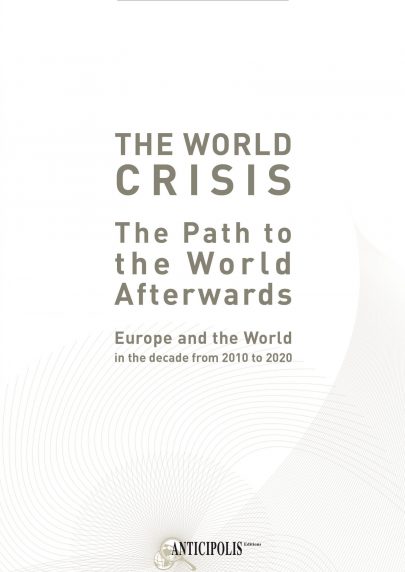
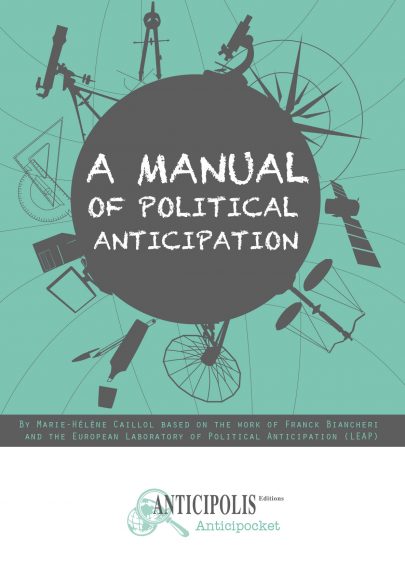
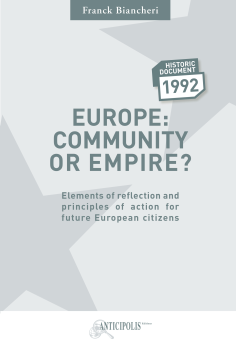
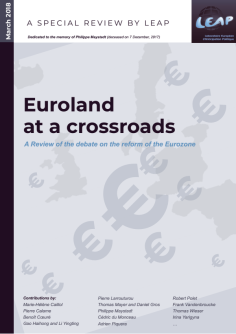
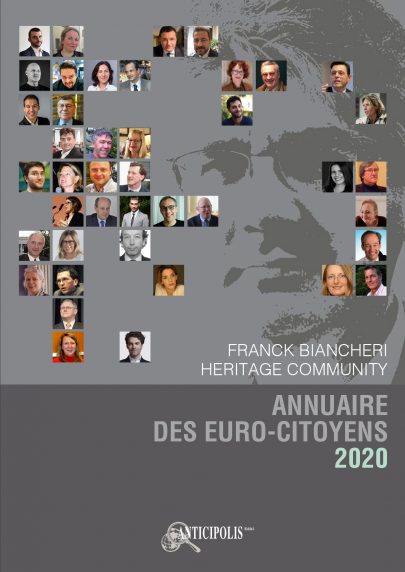
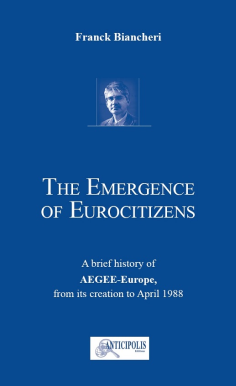
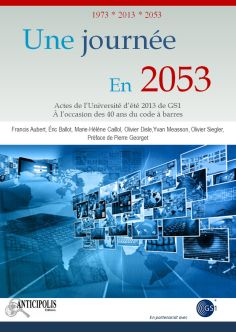
Comments